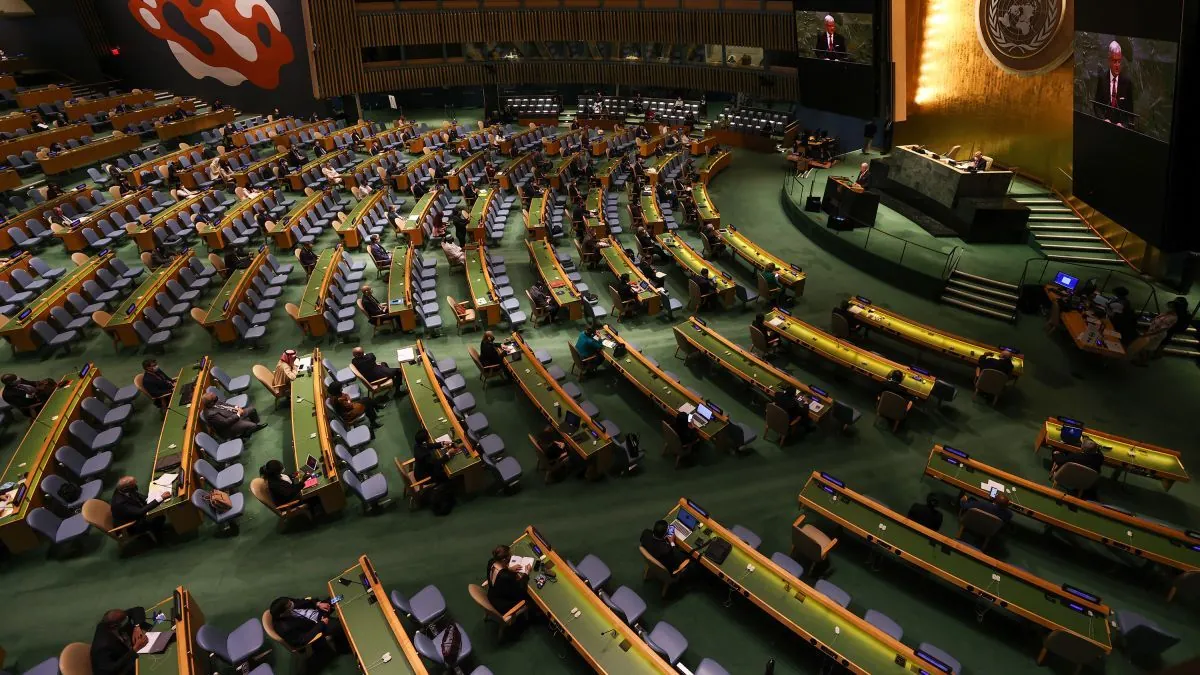UN General Assembly 2024: Global Challenges and Diplomatic Hurdles Ahead
The 79th UN General Assembly convenes amidst ongoing conflicts and pressing global issues. World leaders gather to address sustainable development, nuclear disarmament, and UN reform in a week of high-stakes diplomacy.

The 79th United Nations General Assembly (UNGA) is set to commence in New York City, bringing together approximately 130 heads of state and government for a week of intense diplomatic engagement. This annual gathering, established in 1945, serves as a crucial platform for global leaders to address pressing international issues and foster cooperation.
The Summit of the Future, scheduled for September 22-23, 2024, aims to reinvigorate multilateral collaboration in the wake of recent global crises. A key focus will be the "Pact for the Future," a non-binding agreement addressing topics ranging from artificial intelligence to climate change. Negotiations on this document have been ongoing for months, with Germany and Namibia facilitating the process.
On September 24, 2024, the Sustainable Development Goals (SDG) Moment will highlight progress towards the UN's 17 ambitious targets adopted in 2015. With only six years remaining until the 2030 deadline, member states are striving to accelerate efforts to combat poverty, inequality, and promote sustainable growth.
The General Debate, running from September 24-28, 2024, will provide a platform for world leaders to address the assembly. This year's theme focuses on inclusive action for peace, sustainable development, and human dignity. Historically, this segment has produced memorable moments, including lengthy speeches and controversial statements by various heads of state.

"The truth is that the Security Council has systematically failed in relation to the capacity to put an end to the most dramatic conflicts that we face today: Sudan, Gaza, Ukraine."
The assembly will also tackle specific global challenges, including:
- Sea level rise (September 25)
- Nuclear disarmament (September 26)
- Antimicrobial resistance (September 26)
Ongoing conflicts in Ukraine, Gaza, and Sudan underscore the UN's limitations in preventing and resolving international disputes. The ineffectiveness of the Security Council, particularly in addressing these crises, has prompted calls for reform. Linda Thomas-Greenfield, U.S. Ambassador to the UN, has proposed changes including additional permanent seats for African nations and representation for small island states.
In other global developments, a covert Israeli operation targeting Hezbollah in Lebanon resulted in multiple casualties. Meanwhile, a top U.S. general reported that Russia's military has grown stronger since its 2022 invasion of Ukraine, raising concerns about regional stability.
As the world's leaders convene, they face numerous challenges, including the threat of nuclear proliferation, climate change, and emerging health crises. The UN, with its 193 member states, continues to serve as a vital forum for international dialogue and cooperation, despite its limitations in enforcing resolutions.
The outcomes of this year's General Assembly will be closely watched as nations strive to address global issues collectively in an increasingly complex geopolitical landscape.


































